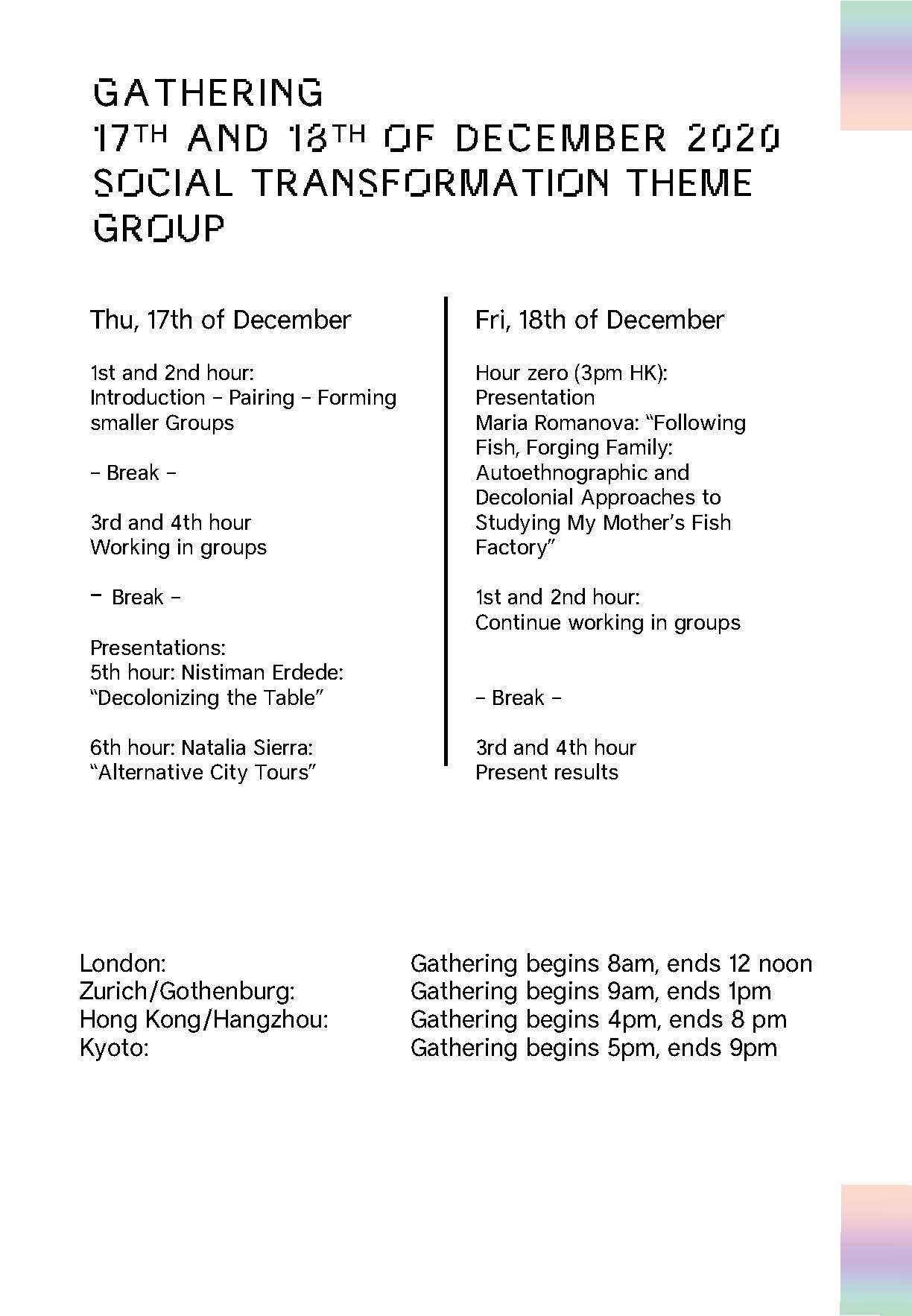Guest Lecturer for ZHdK «Shared Campus Social Transformation». International Webinar, 17.12.2020
Our world is in a state of constant transformation due to political and economic globalisation, technological innovation, urbanisation, and vast social and ecological challenges. In the past twenty years, we have witnessed the emergence of socially engaged art, social design and community-driven creative practices. A great number of artists and designers are operating with an expanded notion of art and organising their creative practices beyond purely aesthetic functions. Social Transformation is centered on the transdisciplinary work with real-life cases in real-life environments including collaborations with the public and non-academic partners. Discovering and defining an own artistic practice is a key element of this theme. Also because the empowerment of both creative practice and practitioners encourages a lively, diverse and independent cultural scene which, in turn, strengt- hens civil society.
The Summer School „Social Design“ uses design thinking, design-methods and design-tools to tackle societal challenges as part of a common learning and creation process. It focuses on social innovation and -develop- ment at different level by building capacity offering solutions, fostering social-, technologic and economic empowerment.
Ausgangspunkt meines Beitrags war der Tisch an dem 1923 der Lausanne-Vertrag unterzeichnet wurde. Als der Schweizer Bundespräsident Pascal Couchepin im Jahr 2008 die Türkei besuchte, schenkte er diesen Tisch als «Geste des guten Willens» seinem türkischen Amtskollegen.
Ich ging der Frage nach, ob es in einer postkolonialen Schweiz nicht viel eher angebracht wäre, solche Tische im hiesigen Nationalmuseum auszustellen, um damit auf die Schweizer Verstrickungen in die lokalen Grenzziehungen der heutigen Türkei zu verweisen und diese kritisch zu hinterfragen.
